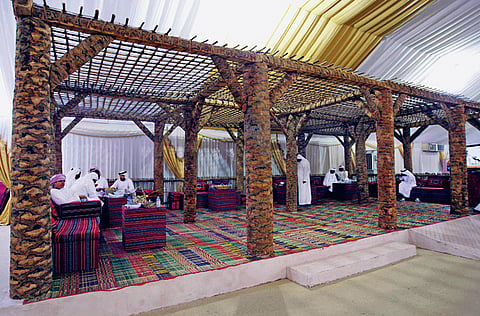Helping you cool off in style
Purchasing the perfect air conditioner is not about zeroing in on the strongest or most expensive machine

Choosing an air conditioner (AC) to meet your needs, involves more than deciding between a window and a split AC.
There are certain important factors to consider when purchasing an AC that cools satisfactorily; you need to consider a few simple aspects before you finally decide on the product.
The first factor that needs to be taken into account is space. For a small house or an apartment, a window AC may be best suited. But while window ACs are cheaper, there are many situations in which a split air-conditioning system works better. For one, it does not require you to give up a window. Secondly, it keeps the noise levels low in your living space.
Heat load calculation
Experts say that the process of buying an AC begins at home. "A heat load calculation needs to be done first. This involves assessing the space in cubic metres and what appliances are used in that space, as they produce heat. There are programmes that can calculate the heat load to get the required tonnage," said Yasir Hilmi, an interior designer with DXB Interior Design.
Traditional wisdom says that about 100 square feet of floor area needs one tonne of cooling capacity. But many factors can change this — including whether the room is exposed to sunlight and the number of people likely to use the room.
The cooling requirements of a majlis, for instance, would be very different from that of a bedroom. "In a majlis, you could have 12 people sitting at a time. In a bedroom, you only have to allow for two people," said MEP consultant, Maqsood A Sheikh, Managing Partner, Consultair.
Sheikh explained that municipal regulations make it mandatory to have well-insulated blocks, roofs and double glass for windows. "For a house built in compliance with those regulations, if you are buying an AC for the living room, consider selecting the capacity of the machine on the basis of 200 square feet to 250 square feet per tonne," he said.
A large kitchen is better cooled with an average of 200 square feet per tonne. In the bedroom, Sheikh said that the light levels and glazing mean that a better ratio is 300 square feet per tonne. "Don't just walk into a showroom and decide to buy a two-and-half-tonne average AC. That may leave your room over cooled," he warned.
Other factors, such as the design of the area that needs to be cooled, are also important. Cool air does not travel around corners, so connecting rooms may not be cooled at the same level. Just as too small a unit would be inefficient, a unit that is too large will not cool an area uniformly. A small unit running for an extended period operates more efficiently with better dehumidification than a large unit that switches on and off frequently.
Verify that your home's electrical system can meet the unit's power requirements. Check that the airflow of the AC is in the desired direction to suit your room layout. For a long room, a fan control that allows for power thrust or turbo, which sends the cooled air farther into the room is recommended. For home ACs it is good to find models that allow for easy sliding out of filters, so it is possible to clean them regularly.
Logically arranged controls, a digital read-out for the thermostat setting, and a built-in timer are some of the other desirable functions. And if all things are equal, opt for a unit with a higher energy efficiency ratio, which will make it less expensive in the long run.
Making room for ACs
Hilmi recommended design options that work well for ACs. "You can have ducting above the ceiling with outdoor and indoor machines. An indoor machine with ducts can be placed in a false ceiling for the flat. This is the best way to install it. And you can even supply three rooms together by using this sort of system," he said.
While buying a unit for optimum comfort has been made an easy task, here is a word of caution for home owners. Sheikh said, "There must be a proper fresh air unit besides these to maintain a comfortable level of oxygen in the house. The engineer has to supply a treated fresh air system. Doors and windows are not always opened. Apart from cooling, one needs oxygen as well. There is package type of unit but you need a fresh air system which lets in air, filters it, cools and diffuses it in the apartment or the house. In the long run, lack of a fresh air system can lead to nasal problems and ailments."



